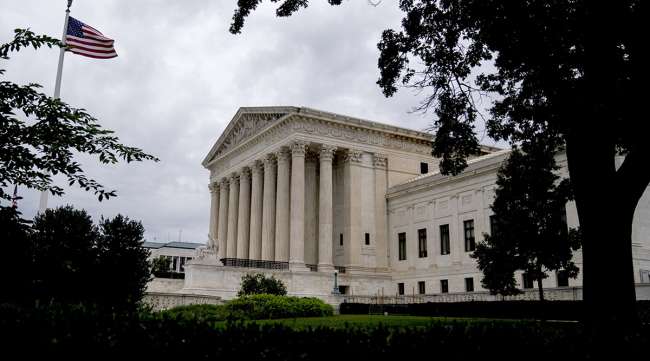Senior Reporter
California Trucking Association to Take AB 5 Case to Supreme Court

[Stay on top of transportation news: Get TTNews in your inbox.]
The California Trucking Association is taking its case to the U.S. Supreme Court.
The association on June 21 learned that the 9th U.S. Circuit Court of Appeals will not reconsider its earlier rejection of CTA’s challenge to a state independent contractor law. In a court filing submitted the same day as the denial, CTA said it plans to appeal its complaint to the nation’s highest court. CTA also asked the 9th Circuit to leave in place a mandate by a lower court in CTA’s favor until the Supreme Court either declines to hear the case or issues a ruling; that request was granted on June 23.
A three-judge panel in the 9th Circuit overturned that earlier ruling, but CTA sought a review by an 11-member panel of the court. The court declined, setting the stage for a Supreme Court challenge.

On May 25, five people pleaded guilty to staging two accidents in New Orleans with tractor-trailers in 2017, while obtaining fraudulent financial settlements totaling more than $282,000. Is the situation surrounding fraudulent settlements getting worse or better in 2021? Host Michael Freeze talks with TT's Eric Miller and Eleanor Lamb. Hear a snippet above, and get the full program by going to RoadSigns.TTNews.com.
The contractor law, widely known by its legislative designation, Assembly Bill 5, or AB 5, adopts a new “ABC test” for determining whether a worker must be treated as an employee for purposes of California’s labor laws. The problem is that the test “effectively prohibits motor carriers from using independent contractor drivers,” according to CTA’s 2018 lawsuit that reached the 9th Circuit last year.
Trade organizations (including American Trucking Associations) representing motor carriers and independent owner-operators alike strongly oppose the new law, which aims to reclassify large numbers of independent contractors as company employees, according to court documents filed earlier this month.
“ATA is pleased that the 9th Circuit has blocked enforcement of California’s restrictive independent contractor law while the California Trucking Association appeals the Court’s ruling to the Supreme Court of the United States," said ATA spokesman Sean McNally. “We are hopeful that the Supreme Court will ultimately not only take the case, but will see the wisdom of CTA’s argument and reverse the 9th Circuit’s ruling.”
CTA said its Supreme Court review is due on or before Nov. 18, 2021.
In its brief June 21 order, the 9th Circuit said none of its judges requested a vote for reconsideration of the earlier denial.
The AB 5 law was to go into effect Jan. 1, 2020, but a district court judge stayed a decision, stating that CTA had a good chance to prevail in its challenge to the law.
“A stay of the mandate is plainly warranted under this court’s standards,” CTA said in a June 21 filing after the 9th Circuit declined to rehear the issue. “First, CTA’s petition will present a substantial question of law on which there is an acknowledged circuit split: Whether the Federal Aviation Administration Authorization Act, or FAAAA, preempts the application to motor carriers of a state worker-classification rule that effectively prohibits motor carriers from engaging truck drivers as independent contractors.”
The CTA noted that there is good cause for a stay and that it is “reasonably likely” that four members of the Supreme Court will support a grant of certiorari in the case and ultimately reverse the three-judge panel’s 2-1 decision from April 28.
“If the mandate issues, then CTA’s members will have to restructure their businesses to comply with AB 5, risk severe civil or even criminal sanctions, or cease doing business due to the financial inability to purchase equipment and hire employee drivers,” the group said.
CTA added the owner-operators who have offered their services as independent contractors will either have to close their small businesses and become employees or cease working in California.
“A stay of the mandate is needed to maintain the status quo while CTA contests the validity of California’s far-reaching worker-classification rule in the Supreme Court,” CTA argued.
Want more news? Listen to today's daily briefing below or go here for more info:




